Boots Riley Radically Rethinks the Superhero
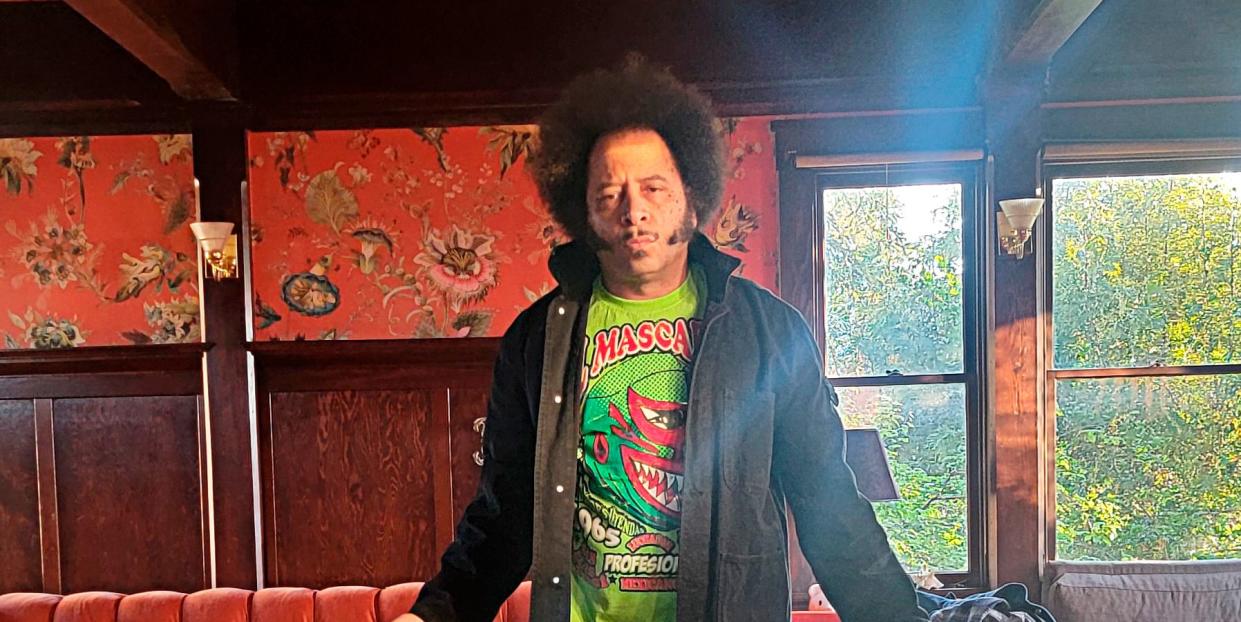
- Oops!Something went wrong.Please try again later.
Growing up, Boots Riley badly wanted to become a superhero. Like, a real one. Scrawny and nerdy and on the edge of adolescence, he started to hone his craft—swinging nunchucks, throwing stars, sneaking into and out of rooms without detection. “Had I stayed on that track, I probably would’ve become a cop,” he says over Zoom one recent afternoon. Instead, he discovered Prince, fell into music, fronted the rap group the Coup for some two decades, and then, in his late 40s, suddenly emerged as an in-demand movie director.
Riley, now 52, is talking from his Oakland home, an early-20th-century Victorian fittingly built by a pioneer of art photography. Riley bought the place four years ago, after the success of Sorry to Bother You, his screenwriting and directing debut. An outrageous black comedy set in the world of telemarketing, the movie offered a blistering indictment of capitalist greed wrapped in a surreal bow. And to anyone who saw the film, it marked the arrival of a singular new voice in cinema. The movie went on to earn six times the roughly $3 million it had cost to make, which presented Riley with opportunities. What, Hollywood wanted to know, would he like to make next?
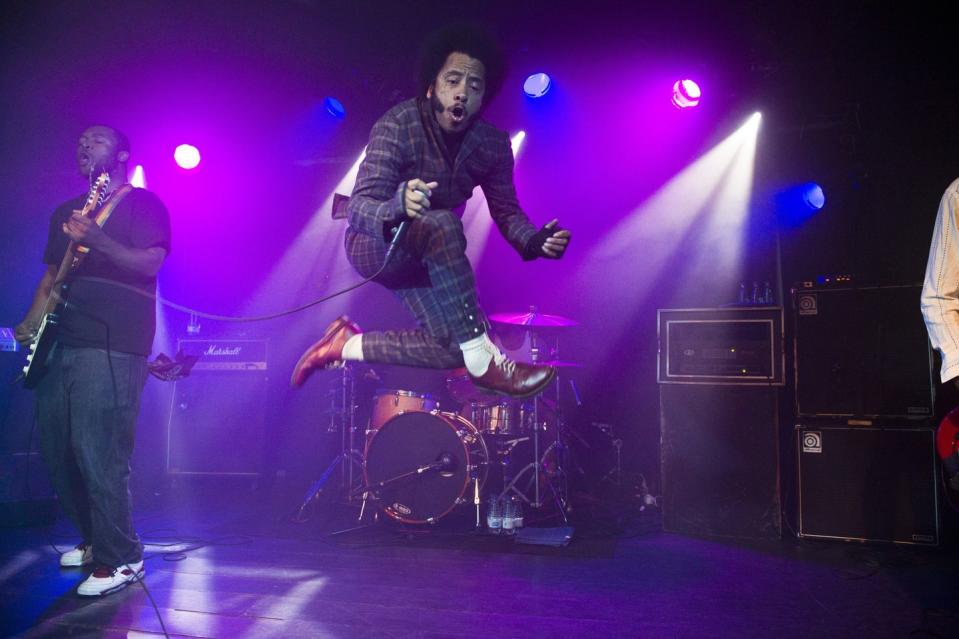
A superhero story, as it turns out. But not one that the average Marvel fan will recognize.
Less a genre homage and more a send-up, his new seven-part limited series I’m a Virgo (which drops June 23 on Prime Video) is about a 13-foot-tall Black teen from Oakland named Cootie who, after having spent his life in secrecy, ventures into the world for the first time. Riley may have had mainstream money to work with this time around, but that doesn’t mean he made a mainstream product. Wouldn’t have even known where to begin.
After he landed the deal for I’m a Virgo, Riley realized he needed to study up. He hadn’t really kept up with the rise of prestige TV. So he subscribed to every major streaming platform. “And I kind of got depressed,” he says, “because I feel like TV is a place where you just get the middle of everything.”
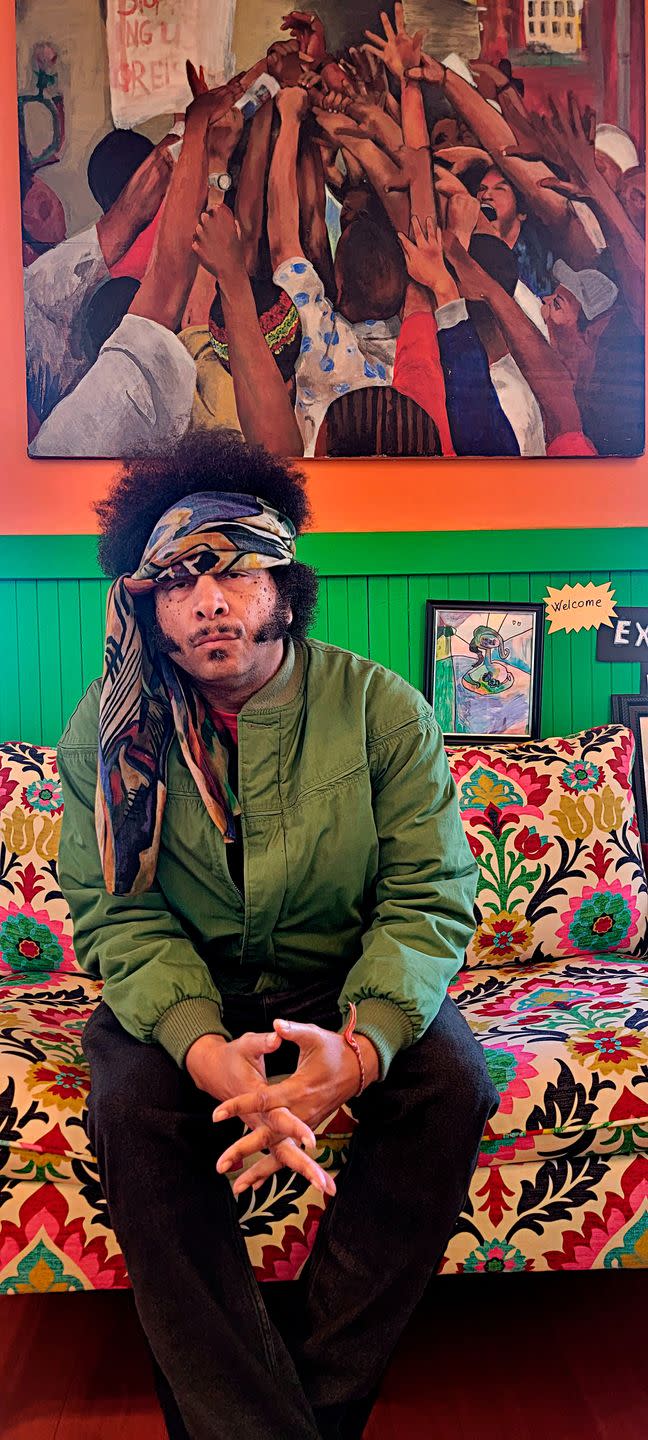
On I’m a Virgo, Riley does not give us the middle of anything. It’s a hero’s quest unlike any you’ve seen. At the outset, Cootie (Jharrel Jerome) is a gentle giant, a 19-year-old with bad BO and messy eating habits who bench-presses a Chevy Caprice to stay in shape. Once he leaves the confines of his parents’ backyard, everything is novelty. He falls for Flora (Olivia Washington, aka Denzel’s daughter), who works at a fast-food burger joint he frequents, then loses his virginity to her in a did-that-really-just-happen sex scene. See, Flora’s a standard-sized human, but she has a special power of her own: She can move through the world at warp speed. At first, Cootie picks her up like she’s a blow-up doll—but she’s in control. The size difference is no match for her ability, but you’re left wondering how pleasurable it is for a novice like Cootie. The scene lasts for eight minutes—more than a third of the episode. The chutzpah!
None of this is quirk for quirk’s sake. Riley’s wild storytelling is inseparable from his lefty politics and activist past. He stopped idolizing costumed avengers long ago. As far as he’s concerned, most superhero movies are nothing more than glorified law-and-order PSAs—reaffirmations of the status quo. On the new series, he wanted to present, shall we say, an alternative view.
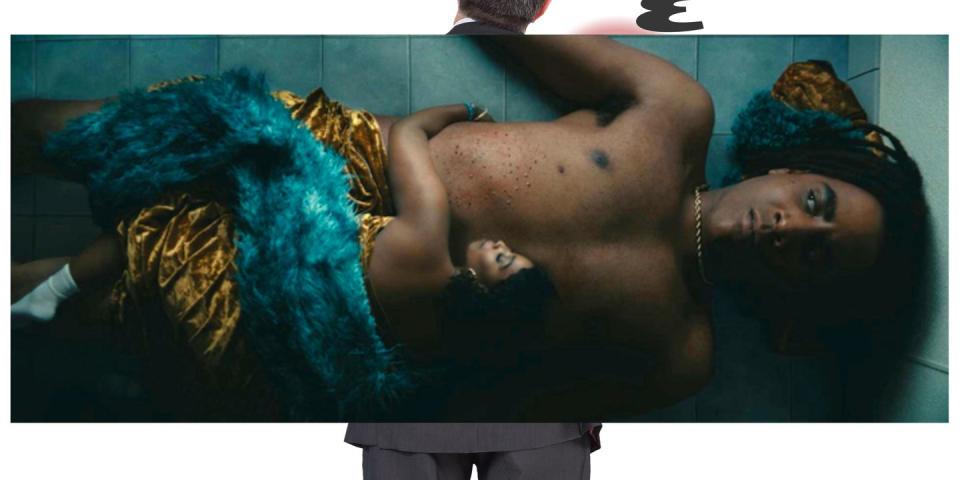
But you need more than vision to make a show as odd as I’m a Virgo; you also need thick skin. “I’m new to filmmaking, but I’m not new to art,” Riley says.
Still, he wasn’t used to navigating Hollywood’s many layers of rubber stampers and paper pushers. “It was scary for people,” he says of the producers’ reception to his more far-out ideas. “After Sorry to Bother You, filmmakers would come up to me and be like, ‘How’d you get them to let you make that?’ And I never understood the question. But now, having gone through this, I understand.”
Why did he need not one, not two, but three 13-foot Cootie dolls, each one requiring five people to operate? Why did he need half-sized dolls of everyone else? Why did he need to hire the miniaturists who’d worked on The Mandalorian? Riley patiently made his case each time. “I politely said, ‘It’s my name that’s going on here, and a lot of people are looking out for the next thing I’m doing, and that’s why I’m not backing down on this.’ ”
Riley comes by his strong beliefs and bold actions honestly. He was raised in Oakland by his father, Walter, a defense lawyer and lifelong organizer who’d joined the civil-rights movement at age 12 and, at 18, moderated a debate with Malcolm X. By that standard, young Raymond Riley—he picked up the nickname “Boots” as a teen—got a late start as an activist. As a junior in high school, he helped lead a walkout of around 2,000 students in protest of a proposed year-round class schedule. The action worked, and the school board scrapped the plans. “The outcome made us drunk off power,” says Riley only half-jokingly. He went on to study film at San Francisco State before dropping out and focusing on music.
This article appeared in the Summer 2023 issue of Esquire
subscribe
Riley’s radical politics only strengthened as he grew older. In 2011, he dipped his toe into the Occupy movement only to find himself the de facto face of the Oakland branch, helping to organize a daylong shutdown of the nation’s fifth-busiest port. Even now, riding high on Hollywood money, Riley proudly calls himself a communist. He talks often about mass, radical movements and says things like “One gift I received from being involved in revolutionary organization is to be taught the ideas of dialectical materialism”—somehow without sounding like a walking Marxism seminar.
“You can say my art is about class struggle and wanting people to make things better in their lives,” he says. “And it is. It shapes and textures the art, makes it more real and more alive.”
For years, Riley delivered that message through music; socialism goes down smoother with a beat. The Coup maintained a loyal following over the years, but Riley found it hard to gauge whether they were making a difference. With each new album, it seemed, they lost half their audience—maybe because they refused to stick to one genre, he thinks. New fans replaced the old ones, but real impact felt elusive. “I was isolated,” he says. While today he can track listens on Spotify and elsewhere, “in the ’90s, I lacked a feedback loop.”
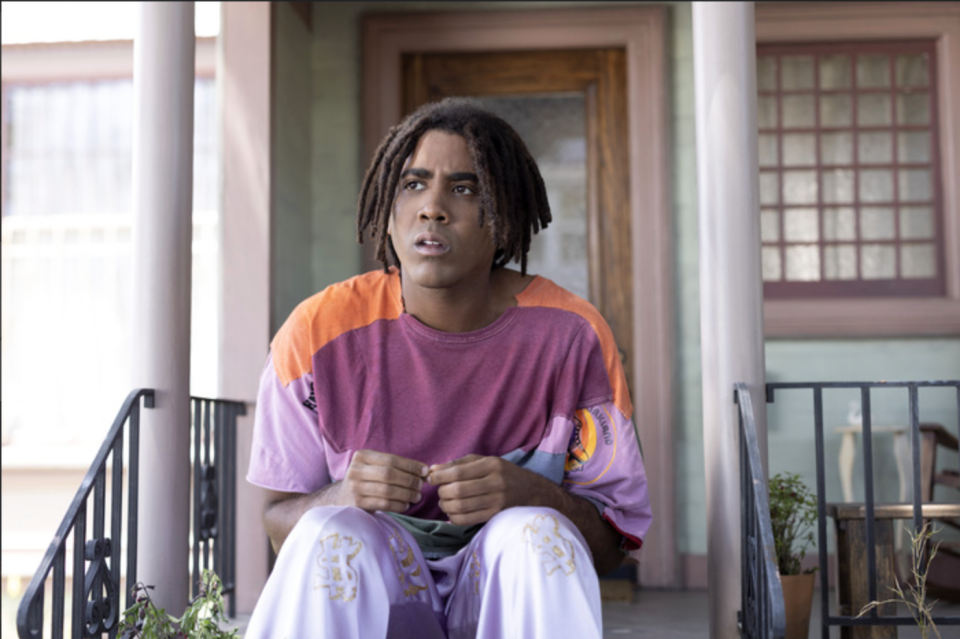
Music is not Riley’s focus these days. In 2017, the Coup’s longtime DJ, Pam the Funkstress (aka Purple Pam, who’d also been Prince’s personal DJ toward the end of his life), died of organ failure. The group still exists—they’re working on new music with their old label, Anti—but visual storytelling is where Riley has trained his cerebrum.
Breaking into film took him nearly a decade. He wrote the Sorry to Bother You script in 2010, finally pursuing an idea inspired by an old telemarketing job. But he couldn’t get anyone to take notice until the Bay Area–based writer Dave Eggers read it, loved it, and in 2014 published it in issue 48 of his literary quarterly, McSweeney’s. That led to Riley landing a filmmaking residency with San Francisco International Film Festival, and then to the Sundance labs, where he’d receive guidance from directorial aces like Guillermo del Toro and Jordan Peele—all that, and the movie was still three years from completion.
The struggle continued after the movie’s Sundance premiere in 2018. Riley left the festival feeling a bit stiffed on his distribution deal. Someone had leaked the movie’s budget to the press, which Riley says led to lowball offers—and he says he knows who finked. “I won’t tell who it is, but I will say this: You know the person’s name,” he says with a half-crooked smile. “And they’ll read this and know that I know who they are.” (Hi, budget leaker!)
The payoff has been seeing his creations make a direct impact on the world in ways he has never experienced with the Coup. During the wave of labor strikes in the U. S. over the past couple years, Riley says, he kept getting messages about workers deciding to go on strike after watching Sorry to Bother You. “It was the opposite of what I was missing before,” he says. “I was like, Okay, this is working.”
If the early reception to I’m a Virgo is any indication, the show will likewise move audiences. In March, when the first four episodes of the series premiered at South by Southwest, Riley rolled up in a vintage convertible with a 13-foot Cootie doll in the back seat. He left having received a standing ovation.
Meanwhile, Riley has turned his focus to a flurry of new projects (though he pressed pause on everything in early May to join his fellow Writers Guild of America union members on strike). He has three different movies in the works, all of which he’s already sold but none of which he is ready to discuss yet. It’s a safe bet, however, that whatever Riley puts out next will be just as far from the middle as his spin on superheroes.
You Might Also Like

